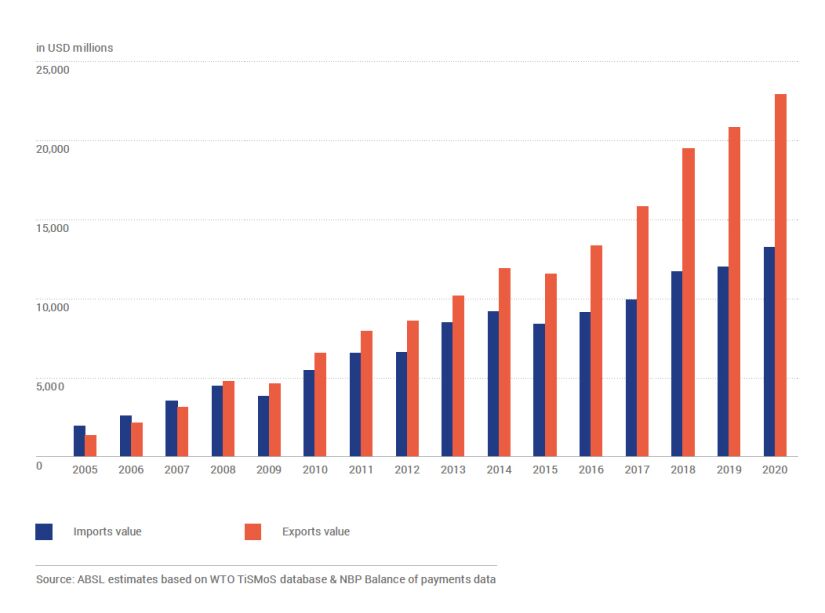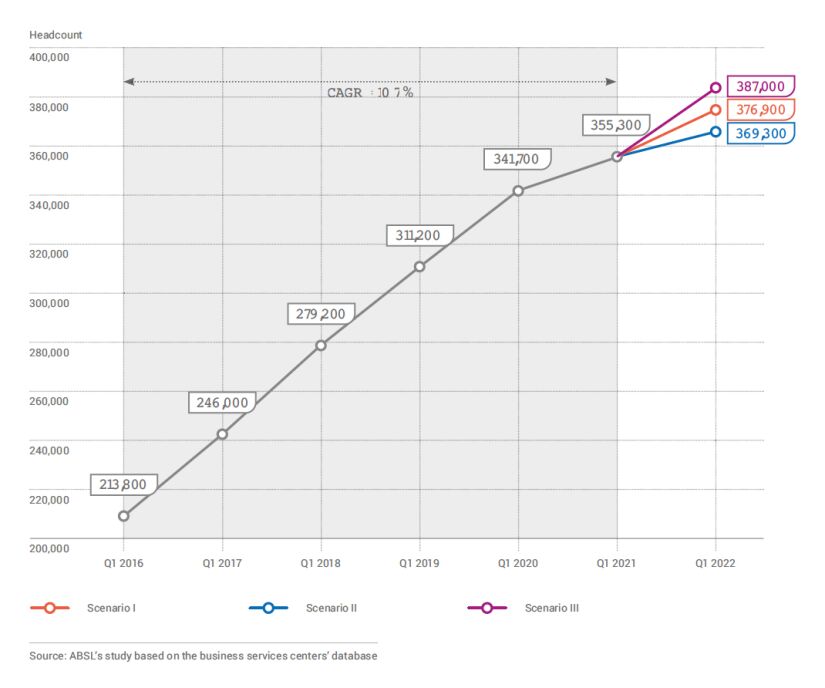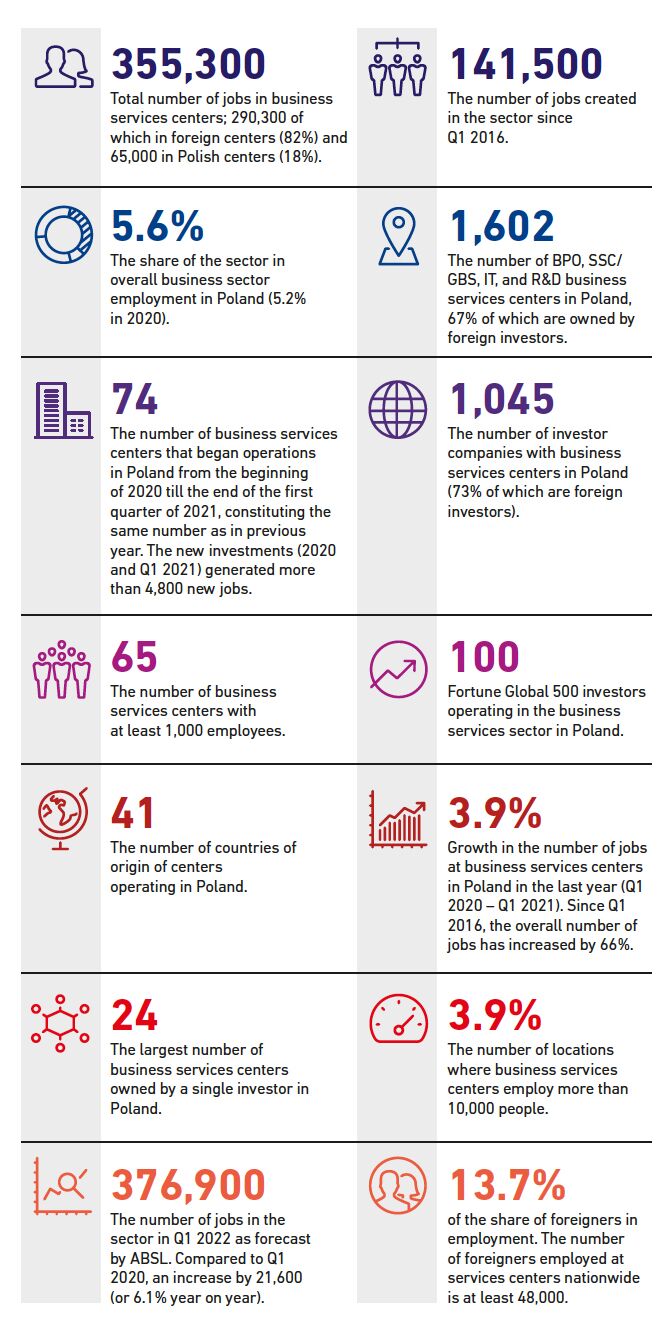UPWARD TRAJECTORY
The Polish economy has been stabilized by the ever-growing business services sector.

The Polish economy has been stabilized by the ever-growing business services sector.

The business services sector in Poland 2021” — the latest report by the Association of Business Service Leaders (ABSL) — shows that with 13,500 new jobs created in 2020, 3.5 percent share of Polish GDP and USD 22.9 billion worth of export, the sector’s development not only continues its upward trajectory but also influences the stabilization of the Polish economy.

BOOSTER OF INNOVATION
The ABSL report shows that the business services sector in Poland is increasingly innovative. As many as 72.9 percent of representatives of the sector declared introducing innovations in the last three years, compared to 26.1 percent recorded by Statistics Poland (GUS) in the enterprise sector. The innovations concerned, inter alia, changes to the product, processes, and organization of the company. Currently, one of the main challenges of the business services sector is the transition from being a follower to being a creator of global trends. The greater presence of Fortune Global 500 companies in the Polish business services sector — five new multinational corporations opened their facilities last year — shows that centers located in Poland are increasingly crucial for business operations of multinational enterprises. Currently, 100 global companies from the Fortune Global 500 list operate 162 facilities in Poland.
 CREATOR OF GLOBAL ROLES
CREATOR OF GLOBAL ROLES
In addition, the latest data confirms that the complexity of services provided in Poland is systematically increasing. There is a clear trend towards a greater role of end-to-end processes and a further shift from back-office to middle-office functions that generate higher added value and prompt to locate global roles in Poland. The competencies that determine their success are critical thinking, competencies of the future, and soft skills such as teamwork and communication. At the same time, changes resulting from the trends create demand for employees with high-level digital skills. The labor market shows increased demand for competencies related to process automation, cloud architecture, analysis, and mining of big data sets. “Our analyses confirm the increase in the complexity of tasks performed in service centers, which require increasingly higher qualifications and competencies of employees. One of the main challenges for further development is the availability of adequately trained staff. To maintain Poland’s competitiveness, especially in terms of the location of global roles and to transform from settlement centers to decision support centers, systemic, often long-term solutions are needed, including the expansion of the talent pool. We must foster competencies related to innovation, modern technologies, digitization, as well as well-thought-out solutions encouraging highly qualified specialists to stay in Poland. The lack of qualified employees who could implement innovations is also perceived as a barrier to the sector’s development,” emphasizes Janusz Dziurzyński, vice president of ABSL. Foreign capital continues to prefer the main business locations in Poland (Tier 1 and Tier 2 cities), reinvesting over time in smaller locations. Yet, over the past two years, there has been a clear increase in the importance of Polish investors. They are opening centers in Tier 3 and Tier 4 locations, as well as in mid-sized towns, contributing to a gradual transformation of local economies. The leader in terms of headcount at business services centers in Poland is still Kraków, where 82,100 people work. Overall 70,200 jobs in the sector are provided in the number two city, Warsaw, and 52,500 in Wrocław.
Janusz Dziurzyński
Association of Business Service Leaders (ABSL) is a Poland-based organization representing some 200 companies from the business services sector. Janusz Dziurzyński is the vice president of ABSL.
